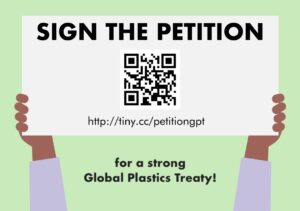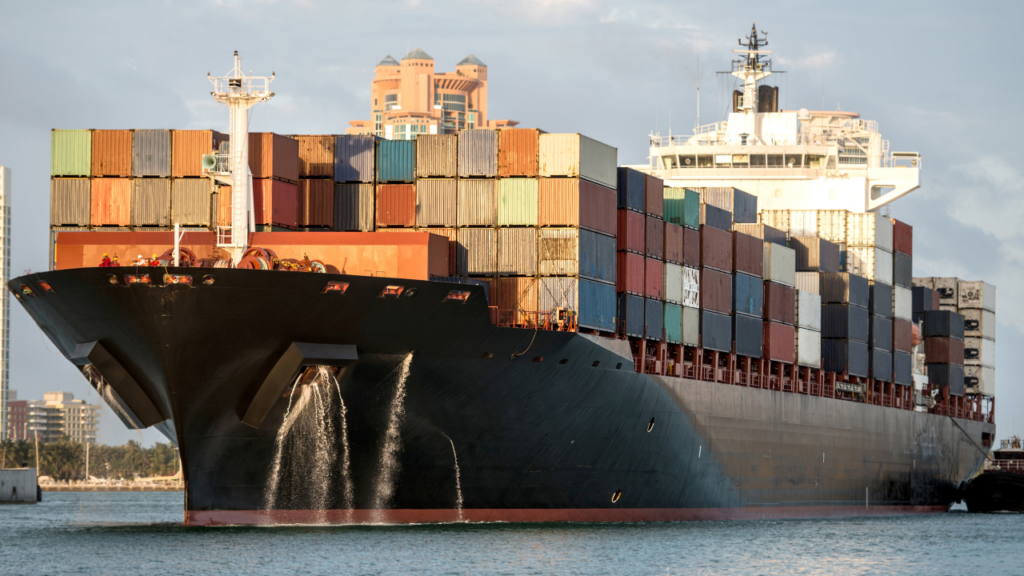When you put your trash in the bin, do you really know where it goes?
In this post we’re exploring the waste trade, a widespread, yet little-known practice that moves mountains of trash around the globe.
What is the global waste trade?
The waste trade is the exchange of waste materials between countries. Various types of waste get exported and imported, including hazardous, non-hazardous, recyclable, and non-recyclable waste.
What countries are involved in the waste trade?
Many countries take part but the direction of trade is mainly one way. Waste is exported from wealthy developed countries to low- and middle-income nations. The primary destinations for waste exports are countries in Southeast Asia, Africa and Latin America. Central Asia and Eastern Europe are other common destinations.
Waste is exported and imported by both government agencies and private companies.
Why is waste traded internationally?
Most countries in the Global North produce more waste than they can deal with. Overpackaging and overconsumption are the norm. For example, the USA represents 4% of the global population but generates 12% of global municipal waste. And then there is industrial waste, which is many, many times greater.
Environmental regulations in these countries are usually strict and the costs of recycling or disposal are high. Exporting waste avoids these inconveniences, while taking advantage of the low labour costs and much weaker regulations overseas. This effectively outsources the burden of waste management to the recipient country.
How much waste gets traded?
It is difficult to get exact numbers on the amount of waste traded globally in any year. However, it is estimated to be in the 100s of millions of tonnes, with significant volumes of hazardous, electronic, and plastic waste being moved across borders.
Why do countries agree to import waste?
While some, correctly sorted, materials – scrap metals, for example – might have value, the main reason why countries accept waste imports is because they have little choice. Global inequalities mean developing countries rarely have the economic power or influence to turn down these containers, especially if they are dependent on the exporting nations for trade, loans or investment. This situation has led the waste trade to be viewed as a form of colonialism, as it mirrors historical patterns of exploitation, pollution and human rights violations.
It is estimated that 15 – 30% of waste shipments are illegal. Containers are often mislabelled (e.g. as “recyclables”, “paper” or “commodities” when they are nothing of the sort) or sent to unauthorised facilities. Bribes are used to get past officials. Interpol has expressed concern about the rise of organised criminal gangs working in the plastic waste trade – and the lack of resources to investigate them.
What happens to the waste?
Whether imported legally or illegally and regardless of the intentions of the exporter, the majority of imported waste is mismanaged. Some common scenarios include:
- Illegal dumping: waste is disposed of in unauthorised areas, such as rivers, forests or even inside villages. Waste from UK supermarkets was found dumped in communities in Myanmar and Malaysia. Tonnes of toxic incinerator ash from America were rejected by several countries, before some was smuggled into Haiti for unlawful disposal and the rest thrown in the ocean.
- Unsafe recycling: waste is processed in low-tech, often illegal, recycling facilities, by workers with few rights or safety protections. Illegal recycling centres in Malaysia were found processing German waste.
- Incineration: waste is either openly burned, often near people’s homes, sent to cement kilns, or sold as fuel.
How does the waste trade affect recipient countries?
Environmental harm
- Toxic chemicals from dumped waste contaminate soil and water.
- Waste burning of any sort releases harmful chemicals into the atmosphere – contributing to respiratory problems and climate change and leaving behind highly poisonous ash.
- Dumped plastic waste causes biodiversity loss and disruption of food chains. Southeast Asia is struggling with marine pollution and ecosystem damage following a surge of plastic waste imports.
Economic harm
- The influx of foreign waste overwhelms local waste management systems. Countries that barely have capacity to deal with their domestic recycling now have to deal with thousands of tonnes of additional trash.
- The influx of waste also lowers market prices for recyclable materials. This leaves local waste pickers, most of whom already work in precarious conditions, further impoverished.
- Significant public funds are needed to clean up illegally dumped waste, as well as deal with the long-term health and environmental consequences.
Social and health impacts
- Entire communities find themselves living next to other people’s waste and unwittingly exposed to toxic chemicals.
- Marginalised groups, including children, are often forced into sorting imported waste. They lack legal protections and face serious health risks.
- Mismanaged plastic waste can worsen environmental disasters such as flooding, increasing the risk of disease outbreaks.
Examples:
- Ghana is inundated with used clothing from Europe and the United States, impacting local textile industries and causing environmental damage.
- Africa has become a dumping ground for electronic waste, exposing workers to toxic substances and polluting the environment.
- An investigation at an abattoir in Kenya found 35kg of plastic in the stomach of a cow.
How does the waste trade affect exporting countries?
The waste trade is the dirty secret of high-income countries.
Most of their citizens have no idea that the waste they dutifully put in the bin marked “recycling” is then sent overseas and often ends up dumped or burned. Countries like Germany, the United Kingdom and Japan are repeatedly praised for their “good waste management”, yet they were among the top plastic waste exporters in 2023.
This lack of public awareness has serious consequences.
Firstly, it gives people the false impression that their waste is being managed efficiently, so nothing needs to change. If everything is being “recycled”, why bother to change patterns of consumption? Companies feel no pressure to produce less waste, nor to invest in local waste management.
Secondly, it perpetuates another dangerous myth – that the Global South cannot handle its waste and is largely responsible for the plastic pollution crisis. This narrative neglects to point out that much of the “mismanaged waste” originates from producers in the Global North.
Exporting countries need to be open about and be held accountable for the waste they ship overseas.
What regulations are there to manage the waste trade?
The Basel Convention exists to control the transboundary movement of explosive, flammable, toxic, or corrosive waste and its disposal.
Signatories have agreed to:
- Seek explicit permission from the recipient country (prior informed consent, or PIC) before exporting their hazardous waste.
- Reduce the generation of hazardous waste.
- Restrict the movement of hazardous waste.
- Implement procedures and standards for the safe handling and disposal of hazardous waste.
While these measures have improved the situation, many developing countries feel they do not go far enough.
They would prefer to see a complete ban on hazardous waste exports, including hard-to-recycle plastic. The EU has agreed to this, recently banning the export of any waste to non-OECD countries from the end of 2026.
Can recipient countries do anything about the waste trade?
Recipient nations are increasingly taking a stand against the dumping of foreign waste within their borders:
- Thailand will implement a plastic waste import ban from 31 December 2024.
- Vietnam enforced import regulations in 2018, after containers of waste began to pile up in their ports.
- The Philippines returned 1,500 tonnes of waste to Canada in 2018 – it was labelled as recycling but contained rotting household waste and electricals.
But more regional collaboration, for example within ASEAN countries, is needed to develop a stronger position; and more resources are needed to investigate and stop trafficking.
How can we stop the waste trade?
No country wants to be a dumping ground for others’ trash.
To stop the waste trade definitively, countries need to take responsibility for their own waste. If it can’t be managed locally, it should not be produced or allowed on the market.
Exports of plastic and other hazardous waste from high-income to low and middle-income countries should be completely banned, following the lead of the EU.
For this ban to be effective, it will need to be supported by:
- a reduction in plastic production;
- robust, society-wide reuse systems; and
- more efficient sorting, management and monitoring of waste.
Without such measures, the illegal trade in waste will only increase.
As individuals, we can make others aware of the practice of shipping waste overseas and end the “out of sight, out of mind” mentality. We can also promote zero waste lifestyles and systems to reduce the amount of waste that needs to be managed in the first place.
 Negotiators for the new Global Plastics Treaty are also attempting to address all of these issues. Trash Hero is advocating for the inclusion of strong and effective measures to stop the waste trade and solve other issues caused by plastic production. Join us by signing this petition.
Negotiators for the new Global Plastics Treaty are also attempting to address all of these issues. Trash Hero is advocating for the inclusion of strong and effective measures to stop the waste trade and solve other issues caused by plastic production. Join us by signing this petition.
Waste trade watch list
Links to great, short documentaries showing the waste trade in action:
➤ Your plastic waste might be traded by criminals – DW [12:30]
➤ Tracking devices reveal where recycling really goes – Bloomberg [13:01]
➤ Trashed: The secret life of plastic exports – ABC News [27:51]
➤ Thailand is tired of recycling your trash – Bloomberg [10:31]
➤ The environmental disaster fuelled by used clothes and fast fashion – ABC News [30:02]
➤ Ghana children work in toxic haze of e-waste – Al Jazeera [2:13]








2 comments
Join the conversationJane Mercy Muthoni - 11/12/2024
Iam working towards a grassroots model across socio economic contexts to create a world without waste. And yes i support strongly the petition
KNOX - 16/04/2025
I AGREE